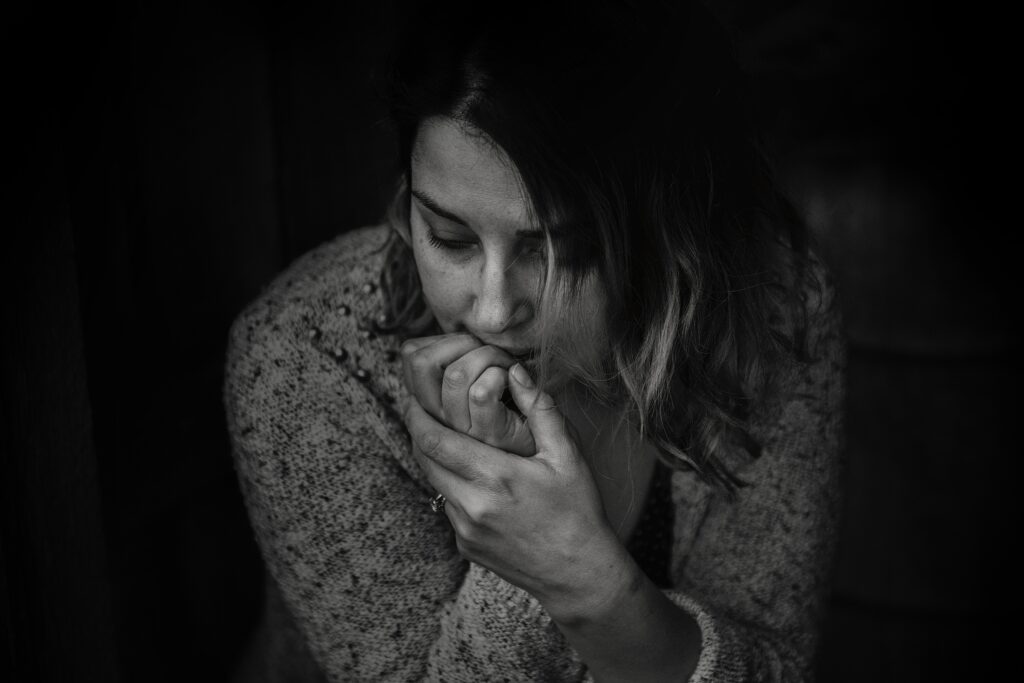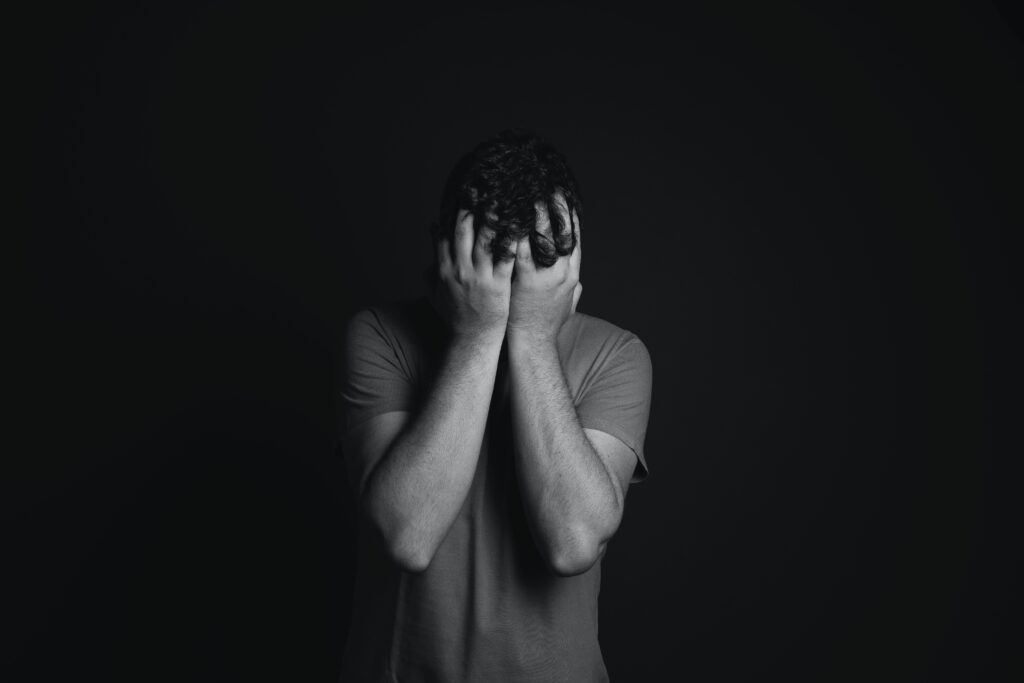6 Things You Didn’t Know Are Related To Anxiety

Have you been feeling worried lately, and are these worries beginning to affect more and more aspects of your life? Are you beginning to suspect that you might be developing anxiety?
Perhaps you are unsure, but feel as though you do not know enough about anxiety to gauge if you are at risk of developing it.
What is Anxiety?
Anxiety is a normal and even necessary part of life. It alerts us to dangers and helps us prepare for a wide variety of situations (American Psychiatric Association, 2021).
According to the Diagnostic and Statistical Manual of Mental Disorders (DSM), anxiety becomes pathological when it begins to greatly impair daily functioning and different aspects of life (DSM-5, 2013).
Information about anxiety has been spreading, but there are still misconceptions people have about it, and aspects of anxiety that many are unaware of.
It is important to be informed about these details in order to better attend to your own mental health.
Here are 6 things you didn’t know are related to anxiety.
1. Imagined threats
You may already be aware that anxiety is a response to danger and uncertainty. But did you know that it doesn’t need to be triggered by a real or actual threat?
Anxiety can be triggered by nearly anything— as well as nothing in particular. It can be ignited by a vague sense of dread, or distressing situations that people completely fabricate in their imagination. The mind is a powerful thing, capable of inventing a threat that, regardless of how irrational it truly is, can feel very real. For instance, people with a certain type of anxiety may completely avoid all social settings because they are convinced that others will automatically judge or ridicule them, even when they realize they have no reason to believe so (DSM-5, 2013; Mayo Clinic, 2018; Signs and symptoms of anxiety, n.d.; The causes of anxiety, n.d.).
2. Physical manifestations
Anxiety does not limit itself to thoughts. It can affect your body, as well— another testament to how powerful the mind can be. Some common physical manifestations of anxiety include chest pains, hives, gastrointestinal issues, muscle tension, and sleep disturbances.
Anxiety can also have lesser known and more subtle physical manifestations. You might have jaw or facial pain from a developed anxious habit of grinding your teeth or clenching your jaw while either you’re asleep or awake. You might also experience persistent hiccups from the psychological distress (Dibdin, 2021; DSM-5, 2013; Signs and symptoms of anxiety, n.d.).
3. Health conditions that can put you at risk
While physical symptoms may occur from anxiety, having chronic or serious health conditions can also put a person at risk of developing anxiety. This can happen from the constant worry that is commonly involved with experiencing illness, aches, or threat of death.
This may be the case for people who suffer from diabetes, heart disease, or have had a heart attack. Even the worry caused by more conditions like living with asthma or severe allergies may lead to anxiety (The causes of anxiety, n.d.).

4. Dissociation
Anxiety can also cause dissociation, which is a defensive response to stress that alters your memory, consciousness, or sense of identity. The most common forms of dissociation are depersonalization, which is feeling disconnected from yourself; or derealization; which involves feeling disconnected from reality or your surroundings.
Dissociation is often thought to be associated with dissociative disorder, but it can also occur from heightened anxiety or stress. If you experience a dissociative episode, this may be your fight, flight, or freeze response to anxiety taking effect (Dibdin, 2021).
5. Certain personality traits (neuroticism)
Certain personality traits were found to be related to anxiety, most especially, neuroticism.
Neuroticism refers to the trait disposition to experience negative emotions, such as anger, irritability and self‐consciousness. It is characterized by a chronic level of emotional instability and vulnerability to psychological distress.
This trait is closely tied to perfectionism, which in turn is closely related to anxiety. While perfectionists may seem incredibly put-together, they may only appear so because they are so preoccupied with avoiding failure, constantly expending energy on worrying about potential mistakes and their imagined consequences.
Additionally, people who possess the neuroticism trait also have a tendency to respond to experiences with negative emotions, again, providing a gateway to anxiety (The causes of anxiety, n.d.).
6. Depression
Two of the most commonly discussed mental disorders are depression and anxiety, and awareness on both of these has been increasing. However, some people may still consider these as separate mental health issues. In reality, these often co-exist, and people who have or are prone to depression are also vulnerable to anxiety.
This is because the two conditions have much in common, such as a history of maltreatment and/or a difficult childhood, as well as malfunction in similar brain regions, such as the amygdala and prefrontal cortex (The causes of anxiety, n.d.).
Concluding Remarks
While there are factors that are related to anxiety or put you at risk for it, this does not mean that developing anxiety or continuing to suffer from it is inevitable. It is important to be aware of risk factors such as these so that you can be mindful of your well-being, or pay attention to signs that your anxiety is growing and affecting your life. This way, you will know to take measures to care for your mental health and better manage your anxiety.
If you or anyone you know could be struggling with an anxiety disorder, please do not hesitate to reach out to a qualified mental health care provider.
References
Diagnostic and Statistical Manual of Mental Disorders: DSM-5. Washington, DC: American Psychiatric Publishing; 2013.
Dibdin, E. (2021, July 6). 9 unusual anxiety symptoms you might not know about. Psych Central. Retrieved from https://psychcentral.com/anxiety/unusual-anxiety-symptoms-you-might-not-know-about#unusual-symptoms
Mayo Foundation for Medical Education and Research. (2018, May 4). Anxiety disorders. Mayo Clinic. Retrieved from https://www.mayoclinic.org/diseases-conditions/anxiety/symptoms-causes/syc-20350961
Sussex Publishers. (n.d.). Signs and symptoms of anxiety. Psychology Today. Retrieved from https://www.psychologytoday.com/us/basics/anxiety/signs-anxiety
Sussex Publishers. (n.d.). The causes of anxiety. Psychology Today. Retrieved from https://www.psychologytoday.com/us/basics/anxiety/the-causes-anxiety



Responses